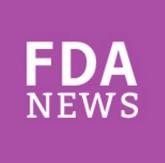News

Rosiglitazone therapy in BARI 2D demonstrates rather reassuring efficacy and safety data. This supports the recommendation of a recent FDA advisory panel to modify rosiglitazone restrictions based on the RECORD results. It is critical to evaluate efficacy and safety removed from media hype and the vocal decrees of small numbers of individuals. Once a negative spin via the media is placed on a form of therapy, subsequent analysis, valid and reassuring as it may be, cannot undue the damage.
The issue of pancreatic disease and incretin based therapy is in front of us right now. Let’s get this one right the first time!
Dr. Paul Jellinger is an endocrinologist in Hollywood, Fla. He is on the speakers bureau for several manufacturers of diabetes drugs, but not GSK.
FROM CIRCULATION
BARI 2D reflects real-life situations for people with access to good care, since intensive treatment of CV risk factors is the goal of appropriate therapy in the United States, he noted. As with pioglitazone (the other TZD marketed in the United States), "there are plausible and extensively researched mechanisms whereby rosiglitazone would be expected to confer cardiovascular benefit" given its mechanism(s) of action, he said.
Finally, the previous FDA panel meetings on rosiglitazone were characterized by a "politicized and media grandstanding climate ... which is not conducive to the best science," while the recent panel meeting in June "appeared more dispassionate," he added.
But even with generic formulations available, neither TZD is likely to be used extensively "because of years of safety concerns, including those regarding bone and cancer, the effect of TZDs to cause weight gain and fluid retention, patient/family concerns raised by ads from lawyers, and the advent of newer agents with a seemingly less concerning safety profile."
Dr. Einhorn has been an adviser to Halozyme Therapeutics, MannKind, and Freedom Meditech, and a consultant to Eli Lilly, Novo Nordisk, Sanofi-Aventis, Bristol-Myers Squibb/AstraZeneca and Novartis.
The study was funded by the National Heart, Lung, and Blood Institute and the National Institute of Diabetes and Digestive and Kidney Diseases, with funding from companies that included rosiglitazone manufacturer GlaxoSmithKline. The lead author, Dr. Bach, disclosed ties to several pharmaceutical companies, but not GSK; one author disclosed having received honoraria from GSK.
The results of the post hoc analysis of the BARI 2D data were first reported at the American Diabetes Association meeting in 2009.



